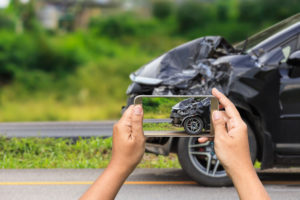If you were involved in a car accident but were not injured, you’re probably wondering if you can sue someone for damaging your car. A lawsuit may even be necessary to recover money if your insurance provider will not pay to repair your vehicle. Even if you believe that you were not injured in a car accident, you should be mindful of delayed injuries, such as emotional distress or other physical injuries that may not appear until days or weeks after the accident.
Contact Us Today to Schedule
a Free Consultation
It is clear from car accident statistics that victims are often forced to pay the cost of the damage to their own vehicle even when it is caused by another driver. For reference, as many as 50 million people sustain non-fatal injuries in car accidents per year, and in 2015, 391,000 people were injured by distracted driving alone. In 2013, nearly 10 years ago, the average automobile liability claim for property damage was $3,231, which has only gone up in recent years. Generally, private insurers pay about 50 percent of all car accident costs, with victims paying 26 percent, and third parties paying only 14 percent.
Your property damage claim will be filed through the negligent party’s insurance provider. This process involves gathering information on the estimated cost of repairs to your vehicle, giving notice to the negligent driver’s auto liability insurance company, and working with an insurance adjuster to gather evidence of your financial losses.
A property damage claim like this will normally resolve the problem and a lawsuit will be unnecessary; however, if the other party is not insured, this can create a bigger issue. Many drivers are uninsured or underinsured. Studies from the Insurance Research Council (IRC) showed that in 2019, 12.6% of motorists were uninsured, which is a little more than 1 in every 10 drivers. In a 2021 study, the IRC found that 1 in 8 drivers are uninsured. Washington, D.C., ranked 9th in the United States in 2019 for the highest percent of uninsured drivers, with an estimated 19.1% of drivers uninsured. In other words, 1 in 8 drivers in DC are driving without insurance.
When the negligent driver is uninsured or if the insurance company denies your claim, a lawsuit may be necessary to cover the cost of the damage to your vehicle. For smaller damages, you may be able to file your claim in small claims court, but if your damages are more significant, you may need to file a civil court claim.

First, you should collect proof of the accident immediately after it took place. This includes:
It is critical to your claim that you can prove that the other driver caused the damage to your vehicle based on negligent or careless conduct. This could be distracted driving (texting, eating, or phone calls), drowsy driving, driving under the influence of drugs or alcohol, or other reckless or irresponsible driving like speeding or ignoring redlights or stop signs. Finally, you must demonstrate that the property damage to your vehicle caused a legitimate financial loss to you.
Normally, in a property damage claim, you will be compensated for the following:
Even if you don’t think you were injured in a car accident, you should keep delayed injuries in mind. Many injuries won’t appear until days, hours, or even weeks after the accident. It is very likely you will experience some delayed or residual physical injuries after a car accident, such as:

Hiring an experienced Washington, DC car accident attorney is critical when you sue someone after being injured in a car accident in Washington, DC. The right lawyer can assist you in handling a situation where the other driver was uninsured and you have no option for a property damage claim through insurance or a situation where your insurance claim is denied. Call Regan Zambri Long PLLC today for a free case evaluation.